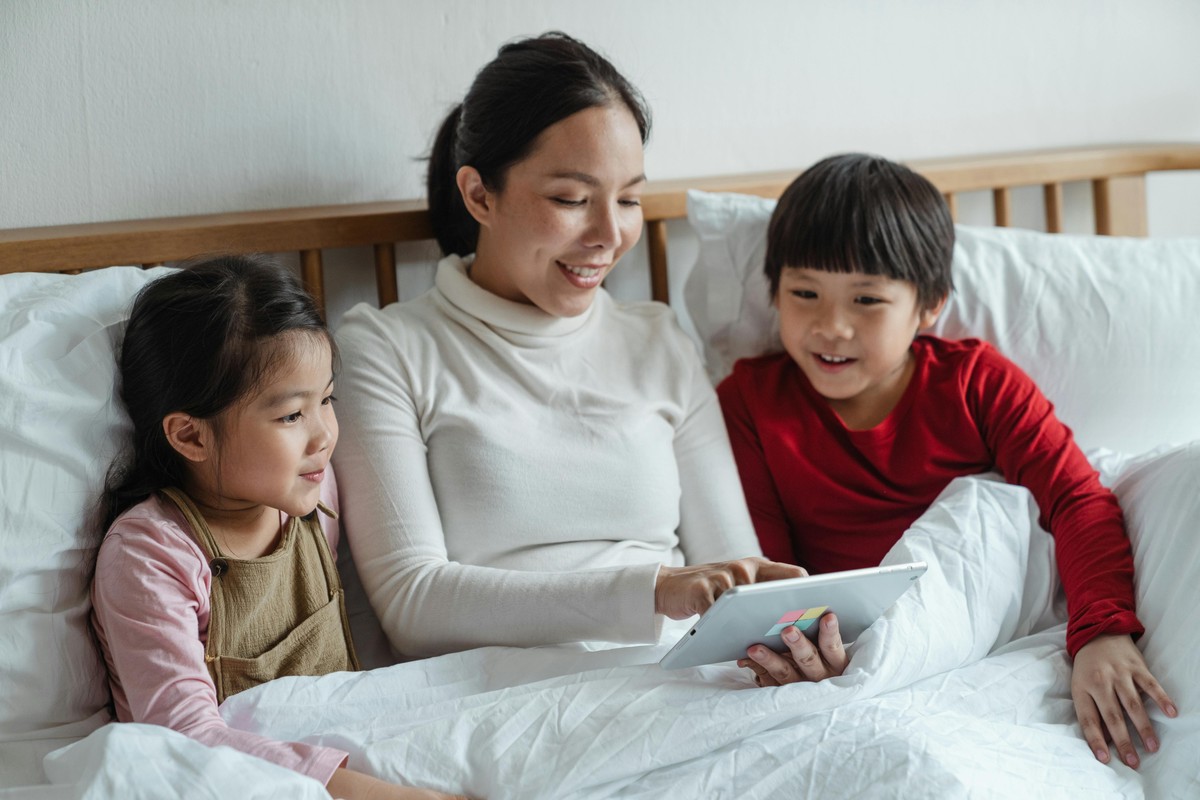Learn how to distinguish what screen time is enriching for your child and what screen time is less helpful.
Promoting Healthy Screen Time Habits: Tips for Tech-Savvy Parenting

Promoting Healthy Screen Time Habits: Tips for Tech-Savvy Parenting
Whole Child Neuro
What’s the right amount of screen time for your child?
Screen time is inevitable in the world we live in. Which isn’t always a bad thing! Some screen time can actually be a good thing for kids. Some television, movies or games can function as a mindless escape, but there are also a lot of resources out there to help children engage their creativity, learn about storytelling–and video games can even help them practice their decision making skills!
But too much screen time, and the opposite can happen. Instead of engaging with their imagination or problem solving skills, they can instead turn their brains off, in a sense, falling into the mindless screen time that even adults struggle with.
So how can you start to distinguish what screen time is enriching for your child and what screen time is less helpful?
Remember it’s not a once and done deal
Unfortunately, there’s no hard and fast rule about how much or what kind of screen time your child should be getting–it’s a subject that’s just too complex to give a simple “X hours of screen time is safe, more than X is bad” because it really depends on how your child is engaging with the device in question. You’ll have to be present in your observations of how your child tends to interact with screens. Ask yourself:
Does your child turn to screens before playing with other toys?
Does your child tend to move on from TV or games to other tactile or imaginative play options?
Does your child enjoy playing with others without screens?
Does your child enjoy sharing their devices with others?
Does your child engage with stories they watch or play in other types of play? (coloring, re-enacting with stuffed animals, make believe stories with movie characters, etc.)
When your child is engaging actively with their devices, they are still stimulating their imaginations, and simply using them as yet another tool to combat boredom with. The problem begins to set in when the screens become a way to avoid boredom. It’s actually good to be bored–that’s when your child’s imagination gets to be creative and imaginative! When they never let themselves get bored, they aren’t able to engage that creative, problem solving part of their brain.
Get curious about your own screen time habits
What screen time habits are you modeling for your child? If you use your screens to avoid boredom, that’s what your child will learn to do as well. Get curious about how you engage with your devices both in front, and away from your child. When you pick up your phone, what is the purpose? Are you using your own devices mindfully? Can you have device free time in your home for both you and your child? Device free dinners can help you spend mindful, engaged time with your child where neither of you are distracted by screens.
Determine what you want to protect:
What are your main concerns about your child having too much screen time? Are you afraid they’ll engage with age inappropriate content? Are you concerned they won’t make time to play with their toys and grow their tactile and imaginative skills? Are you worried they will become isolated, and pull away from their friends? Are you nervous they’ll be distracted from other activities, like homework, spending time outside, or engaging with your family?
When you can narrow down your main concerns, screen time and all its effects can seem less ominous. You can implement methods to address each of these concerns, once you figure out what is the most important to you. Screen time limits, allowing devices to be used once homework is complete, or when their friends are not over.
Remember that developing healthy screen habits for your child won’t be done overnight, and it won’t be done with a single decision. It’s a relationship to stay curious about and engaged with.
Interested in learning more?
If you’re looking for help developing a plan for your child’s screen use, we’d be happy to meet with you for a consultation. You and your child will meet with Dr. Laura McDonald, the Founder of Whole Child Neurodevelopment Group, to begin a dialogue about childhood development.
Contact us today to schedule a consultation with your local pediatric neuropsychologist here at Whole Child Neuro — our office is conveniently located in Encino.
